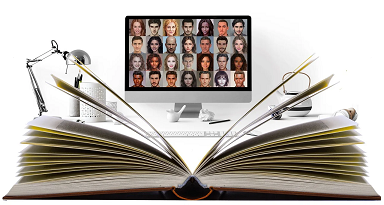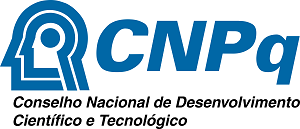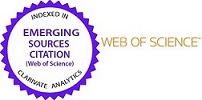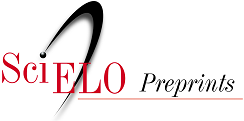As estratégias de aprendizagem na formação inicial de docentes: uma revisão sistemática da literatura
DOI:
https://doi.org/10.25053/redufor.v8.e10022Palavras-chave:
Estratégias cognitivas e metacognitivas, Aprendizagem autorregulada, . Formação de professores, Revisão da literaturaResumo
As estratégias de aprendizagem são ferramentas utilizadas no processamento das informações. A respeito de como elas podem ser ensinadas, é imprescindível que professores em formação sejam instruídos acerca da temática de forma a beneficiar a si e a seus futuros alunos. Assim, o presente artigo teve como objetivo realizar uma revisão sistemática das pesquisas sobre as estratégias de aprendizagem utilizadas por estudantes de licenciatura. Foram analisados artigos nacionais e internacionais publicados entre 2017 e 2022 indexados nas bases Educational Resources Information Center, Scientific Electronic Library Online, Science Direct, Scopus, Rede de Revistas Científicas da América Latina e Caribe, Espanha e Portugal e Portal da Coordenação de Aperfeiçoamento de Pessoal de Nível Superior. Após o exame e a verificação dos critérios de inclusão e exclusão, 14 artigos foram incluídos na revisão. Os resultados revelaram que os futuros professores fazem uso moderado das estratégias de aprendizagem e exibem perfis distintos de uso. Variáveis demográficas, acadêmicas e psicológicas se associaram ao relato de uso dessas estratégias. Ressalta-se a necessidade de ampliar as investigações nacionais sobre esse tema.
Downloads
Referências
ANTHONYSAMY, L.; AH CHOO, K.; SOON HIN, H. Investigating self-regulated learning strategies for digital learning relevancy. Malaysian Journal of Learning and Instruction, Sintok, v. 18, n. 1, p. 29-64, 2021. DOI: https://doi.org/10.32890/mjli2021.18.1.2. DOI: https://doi.org/10.32890/mjli2021.18.1.2
ARCOVERDE, Â. R. R. et al. Self-Regulated learning of Brazilian students in a Teacher Education Program in Piauí: the impact of a self-regulation intervention. Frontiers in Education, Lausanne, v. 5, p. 1-15, 2020. DOI: https://doi.org/10.3389/feduc.2020.571150. DOI: https://doi.org/10.3389/feduc.2020.571150
ARCOVERDE, Â. R. R. et al. Self-Regulated learning of Natural Sciences and Mathematics future teachers: learning strategies, self-efficacy, and socio-demographic factors. Psicologia: Reflexão e Crítica, Porto Alegre, v. 35, n. 1, p. 1-14, 2022. DOI: https://doi.org/10.1186/s41155-021-00203-x. DOI: https://doi.org/10.1186/s41155-021-00203-x
AVILA, L. T. G.; FRISON, L. M. B.; VEIGA SIMÃO, A. M. Estratégias de autorregulação da aprendizagem: contribuições para a formação de estudantes de Educação Física. Revista Iberoamericana de Educación, Madrid, v. 70, n. 1, p. 63-78, 2016. DOI: https://doi.org/10.35362/rie70173. DOI: https://doi.org/10.35362/rie70173
BANDURA, A. Adolescent development from an agentic perspective. In: PAJARES, F.; URDAN, T. (ed.). Self-Efficacy beliefs of adolescents. Greenwich: Information Age, 2006. p. 1-43.
BARNARD, L. et al. Measuring self-regulation in online and blended learning environments. The Internet and Higher Education, [S.l.], v. 12, n. 1, p. 1-6, 2009. DOI: https://doi.org/10.1016/j.iheduc.2008.10.005. DOI: https://doi.org/10.1016/j.iheduc.2008.10.005
BOON, E. T. Self-regulated learning skills of prospective music teachers in Turkey. International Journal of Music Education, [S.l.], v. 38, n. 3, p. 415-430, 2020. DOI: https://doi.org/10.1177/0255761420909. DOI: https://doi.org/10.1177/0255761420909919
BORUCHOVITCH, E. Autorregulação da aprendizagem: contribuições da psicologia educacional para a formação de professores. Psicologia Escolar e Educacional, São Paulo, v. 18, n. 3, p. 401-409, 2014. DOI: https://doi.org/10.1590/2175-3539/2014/0183759. DOI: https://doi.org/10.1590/2175-3539/2014/0183759
BORUCHOVITCH, E. et al. Estratégias de estudo e aprendizagem de estudantes brasileiros em cursos de formação de professores. Educação: Teoria e Prática, v. 30, n. 63, p. 1-18, 2020. DOI: https://doi.org/10.18675/1981-8106.v30.n.63.s14683. DOI: https://doi.org/10.18675/1981-8106.v30.n.63.s14683
BORUCHOVITCH, E. et al. A construção de uma escala de estratégias de aprendizagem para alunos do ensino fundamental. Psicologia: Teoria e Pesquisa, Brasília, DF v. 22, n. 3, p. 297-304, 2006. DOI: https://doi.org/10.1590/S0102-37722006000300006. DOI: https://doi.org/10.1590/S0102-37722006000300006
CALLAN, G. L.; SHIM, S. S. How teachers define and identify self-regulated learning. The Teacher Educator, [S.l.], v. 54, n. 3, p. 295-312, 2019. DOI: https://doi.org/10.1080/08878730.2019.1609640. DOI: https://doi.org/10.1080/08878730.2019.1609640
CEREZO, R. et al. El papel mediador de la autoeficacia y la utilidad entre el conocimiento y el uso de estrategias de autorregulación del aprendizaje. Revista de Psicodidáctica, Bizkaia, v. 24, n. 1, p. 1-8, 2019. DOI: https://doi.org/10.1016/j.psicod.2018.08.001. DOI: https://doi.org/10.1016/j.psicod.2018.08.001
DE SMUL, M. et al. How competent do teachers feel instructing self-regulated learning strategies? Development and validation of the teacher self-efficacy scale to implement self-regulated learning. Teaching and Teacher Education, [S.l.], v. 71, p. 214-225, 2018. DOI: https://doi.org/10.1016/j.tate.2018.01.001. DOI: https://doi.org/10.1016/j.tate.2018.01.001
DEMBO, M. H. Learning to teach is not enough: future teachers also need to learn how to learn. Teacher Education Quarterly, [S.l.], v. 28, n. 4, p. 23-35, 2001. Disponível em: http://www.jstor.org/stable/23478314. Acesso em: 10 dez. 2022.
DIAS, S. S. et al. Estratégias de aprendizagem no ensino remoto: um estudo com licenciandos em Química e Biologia. Research, Society and Development, Vargem Grande Paulista, v. 10, n. 8, p. 1-8, 2021. DOI: https://doi.org/10.33448/rsd-v10i8.17183. DOI: https://doi.org/10.33448/rsd-v10i8.17183
DIGNATH, C.; BÜTTNER, G. Teachers’ direct and indirect promotion of self-regulated learning in primary and secondary school mathematics classes – insights from video-based classroom observations and teacher interviews. Metacognition and Learning, [S.l.], v. 13, n. 2, p. 127-157, 2018. DOI: https://doi.org/10.1007/s11409-018-9181-x. DOI: https://doi.org/10.1007/s11409-018-9181-x
ESTRADA ARAOZ, E. G.; GALLEGOS RAMOS, N. A. Cansancio emocional en estudiantes universitarios peruanos en el contexto de la pandemia de Covid-19. Educação & Formação, Fortaleza, v. 7, p. e6759, 2022. DOI: https://doi.org/10.25053/redufor.v7i1.6759. DOI: https://doi.org/10.25053/redufor.v7i1.6759
FRISON, L. M. B. Autorregulação da aprendizagem: abordagens e desafios para as práticas de ensino em contextos educativos. Revista de Educação PUC, Campinas, v. 21, n. 1, p. 1-17, 2016. DOI: https://doi.org/10.24220/2318-0870v21n1a2992. DOI: https://doi.org/10.24220/2318-0870v21n1a2992
FRISON, L. M. B.; VEIGA SIMÃO, A. M.; CIGALES, J. R. Aprendizagens na docência: Pibid e a formação de professores. Revista e-Curriculum, São Paulo, v. 15, n. 1, p. 25-44, 2017. DOI: https://doi.org/10.23925/1809-3876.2017v15i1p25-44. DOI: https://doi.org/10.23925/1809-3876.2017v15i1p25-44
GANDA, D. R.; BORUCHOVITCH, E. As atribuições de causalidade e as estratégias autoprejudiciais de alunos do curso de Pedagogia. Psico-USF, Bragança Paulista, v. 21, n. 2, p. 331-340, 2016. DOI: https://doi.org/10.1590/1413-82712016210210. DOI: https://doi.org/10.1590/1413-82712016210210
GANDA, D. R.; BORUCHOVITCH, E. Self-regulation of Learning: key concepts and theoretical models. Revista Psicologia da Educação, São Paulo, v. 1, n. 46, p. 71-80, 2018. DOI: https://doi.org/10.5935/2175-3520.20180008. DOI: https://doi.org/10.5935/2175-3520.20180008
GARGALLO, B.; SUÁREZ-RODRÍGUEZ, J. M.; PÉREZ-PÉREZ, C. El cuestionario Ceveapeu. Un instrumento para la evaluación de las estrategias de aprendizaje de los estudiantes universitarios. Revista Electrónica de Investigación y Evaluación Educativa, Valencia, v. 15, n. 2, p. 1-31, 2014. DOI: https://doi.org/10.7203/relieve.15.2.4156. DOI: https://doi.org/10.7203/relieve.15.2.4156
GÓES, N. M.; BORUCHOVITCH, E. Estratégias de aprendizagem: como promovê-las. Petrópolis: Vozes, 2022.
GÜVEN, M.; ÇÖGENLİA, G. Validity and reliability of the metacognitive learning strategies scale. Dicle University Journal of Ziya Gökalp Education Faculty, [S.l.], n. 22, p. 283-297, 2014.
HÄKKINEN, P. et al. Finnish pre-service teachers’ perceptions of their strategic learning skills and collaboration dispositions. Journal of Education for Teaching, [S.l.], v. 46, n. 1, p. 71-86, 2019. DOI: https://doi.org/10.1080/02607476.2019.1708628. DOI: https://doi.org/10.1080/02607476.2019.1708628
HALAMISH, V. Pre-service and in-service teachers’ metacognitive knowledge of learning strategies. Frontiers in Psychology, [S.l.], v. 9, p. 2512-2523, 2018. DOI: https://doi.org/10.3389/fpsyg.2018.02152. DOI: https://doi.org/10.3389/fpsyg.2018.02152
HONG, J.-C.; LEE, Y.-F.; YE, J.-H. Procrastination predicts online self-regulated learning and online learning ineffectiveness during the coronavirus lockdown. Personality and Individual Differences, [S.l.], v. 174, p. 1-8, 2021. DOI: https://doi.org/10.1016/j.paid.2021.110673. DOI: https://doi.org/10.1016/j.paid.2021.110673
JANSEN, R. S. et al. Validation of the self-regulated online learning questionnaire. Journal of Computing in Higher Education, [S.l.], v. 29, n. 1, p. 6-27, 2016. DOI: https://doi.org/10.1007/s12528-016-9125-x. DOI: https://doi.org/10.1007/s12528-016-9125-x
JERÓNIMO-ARANGO, L. C.; YANIZ-ÁLVAREZ-DE-EULATE, C.; CARCAMO-VERGARA, C. Estrategias de aprendizaje de estudiantes colombianos de grado y posgrado. Revista Internacional de Investigación en Educación, Bogotá, v. 13, p. 1-20, 2020. DOI: https://doi.org/10.11144/Javeriana.m13.eaec. DOI: https://doi.org/10.11144/Javeriana.m13.eaec
JURIŠEVIČ, M. et al. Higher education students’ experience of emergency remote teaching during the Covid-19 pandemic in relation to self-regulation and positivity. Center for Educational Policy Studies Journal, [S.l.], v. 11, p. 241-262, 2021. DOI: https://doi.org/10.26529/cepsj.1147. DOI: https://doi.org/10.26529/cepsj.1147
KINGIR, S.; GOK, B.; BOZKIR, A. S. Exploring relations among pre-service science teachers’ motivational beliefs, learning strategies and constructivist learning environment perceptions through unsupervised data mining. Journal of Baltic Science Education, [S.l.], v. 19, n. 5, p. 804-823, 2020. DOI: https://doi.org/10.33225/jbse/20.19.804. DOI: https://doi.org/10.33225/jbse/20.19.804
KLEIN, P. et al. Studying physics during the Covid-19 pandemic: student assessments of learning achievement, perceived effectiveness of online recitations, and online laboratories. Physical Review Physics Education Research, [S.l.], v. 17, n. 1, p. 1-11, 2021. DOI: https://doi.org/10.1103/PhysRevPhysEducRes.17.010117. DOI: https://doi.org/10.1103/PhysRevPhysEducRes.17.010117
KÖRÜKCÜ, M. The investigation of social studies teacher candidates cognitive flexibility levels and metacognitive learning strategies in terms of different variables. Asian Journal of Education and Training, [S.l.], v. 6, n. 1, p. 1-11, 2020. DOI: https://doi.org/10.20448/journal.522.2020.61.1.11. DOI: https://doi.org/10.20448/journal.522.2020.61.1.11
LAWSON, M. J. et al. Teachers’ and Students’ belief systems about the self-regulation of learning. Educational Psychology Review, [S.l.], v. 31, n. 1, p. 223-251, 2018. DOI: https://doi.org/10.1007/s10648-018-9453-7. DOI: https://doi.org/10.1007/s10648-018-9453-7
LIU, J. et al. Psychometric properties of the cognitive and metacognitive learning strategies scales among preservice physical education teachers: a bifactor analysis. European Physical Education Review, [S.l.], v. 25, n. 3, p. 616-639, 2018. DOI: https://doi.org/10.1177/1356336X18755087. DOI: https://doi.org/10.1177/1356336X18755087
LIU, J. et al. Self-regulated learning strategies and achievement goals among preservice physical education teachers. European Physical Education Review, [S.l.], v. 26, n. 2, p. 375-391, 2019. DOI: https://doi.org/10.1177/1356336X19859602. DOI: https://doi.org/10.1177/1356336X19859602
MARINI, J. A. S.; BORUCHOVITCH, E. Self-Regulated learning in students of Pedagogy. Paidéia, Ribeirão Preto, v. 24, n. 59, p. 323-330, 2014. DOI: https://doi.org/10.1590/1982-43272459201406. DOI: https://doi.org/10.1590/1982-43272459201406
MCCOMBS, B. L. Historical review of learning strategies research: strategies for the whole learner - A tribute to Claire Ellen Weinstein and early researchers of this topic. Frontiers in Education, [S.l.], v. 2, 2017. DOI: https://doi.org/10.3389/feduc.2017.00006. DOI: https://doi.org/10.3389/feduc.2017.00006
MUWONGE, C. M. et al. Use of self-regulated learning strategies among teacher education students: a latent profile analysis. Social Sciences & Humanities Open, [S.l.], v. 2, n. 1, p. 1-8, 2020. DOI: https://doi.org/10.1016/j.ssaho.2020.100037. DOI: https://doi.org/10.1016/j.ssaho.2020.100037
OLIVEIRA, K. L.; BORUCHOVITCH, E.; SANTOS, A. A. A. Estratégias de aprendizagem e desempenho acadêmico: evidências de validade. Psicologia: Teoria e Pesquisa, Brasília, DF, v. 25, n. 4, p. 531-536, 2009. DOI: https://doi.org/10.1590/S0102-37722009000400008. DOI: https://doi.org/10.1590/S0102-37722009000400008
ÖZDEMİR, A.; ÖNAL, A. an investigation into pre-service teachers’ self-regulated online learning perceptions. International Journal of Contemporary Educational Research, 2021. DOI: https://doi.org/10.33200/ijcer.865189. DOI: https://doi.org/10.33200/ijcer.865189
PAGE, M. J. et al. The PRISMA 2020 statement: an updated guideline for reporting systematic reviews. British Medical Journal, [S.l.], v. 372, n. 71, p. n71, 2021. DOI: https://doi.org/10.1136/bmj.n71. DOI: https://doi.org/10.1136/bmj.n71
PEREIRA NETO, L. L.; FARIA, A. A. G. B. T.; ALMEIDA, L. S. Satisfação acadêmica no contexto da pandemia da Covid-19 em estudantes do Ensino Superior. Educação & Formação, Fortaleza, v. 7, p. e8477, 2022. DOI: https://doi.org/10.25053/redufor.v7.e8477. DOI: https://doi.org/10.25053/redufor.v7.e8477
PELLISSON, S.; BORUCHOVITCH, E. Estratégias de regulação emocional de futuros professores. Educação & Formação, Fortaleza, v. 7, p. e7152, 2022. DOI: https://doi.org/10.25053/redufor.v7i1.7152. DOI: https://doi.org/10.25053/redufor.v7i1.7152
PINTRICH, P. R. et al. Reliability and predictive validity of the Motivated Strategies for Learning Questionnaire (Mslq). Educational and Psychological Measurement, [S.l.], v. 53, n. 3, p. 801-813, 1993. DOI: https://doi.org/10.1177/0013164493053003024. DOI: https://doi.org/10.1177/0013164493053003024
RANDI, J. Teachers as self-regulated learners. Teachers College Record, [S.l.], v. 106, n. 9, p. 1825-1853, 2004. DOI: https://doi.org/10.1111/j.1467-9620.2004.00407.x. DOI: https://doi.org/10.1111/j.1467-9620.2004.00407.x
REINDL, M.; TULIS, M.; DRESEL, M. Profiles of emotional and motivational self-regulation following errors: Associations with learning. Learning and Individual Differences, v. 77, p. 101806, 2020. DOI: https://doi.org/10.1016/j.lindif.2019.101806. DOI: https://doi.org/10.1016/j.lindif.2019.101806
SCHUNK, D. H.; GREENE, J. A. Historical, contemporary, and future perspectives on self-regulated learning and performance. In: SCHUNK, D. H.; GREENE, J. A. (ed.). Handbook of self-regulation of learning and performance. London: Routledge/Taylor & Francis Group, 2018. p. 1-15. DOI: https://doi.org/10.4324/9781315697048-1
SELI, H.; DEMBO, M. H. Motivation and learning strategies for college success: a focus on self-regulated learning. London: Routledge, 2020. DOI: https://doi.org/10.4324/9780429400711
SPURK, D. et al. Latent profile analysis: a review and “how to” guide of its application within vocational behavior research. Journal of Vocational Behavior, [S.l.], v. 120, p. 1-21, 2020. DOI: https://doi.org/10.1016/j.jvb.2020.103445. DOI: https://doi.org/10.1016/j.jvb.2020.103445
TURAN, S. The relationship between attitudes to problem-based learning, learning skills and achievement. 2009. Doctoral Dissertation – Hacettepe Medical School, 2009.
VERSUTI, F. M.; ANDRADE, R. B. N. M.; ZERBINI, T. Learning strategies in distance courses: difference between teaching degree and extension courses. Psicologia: Teoria e Pesquisa, Brasília, DF, v. 36, p. 1-7, 2020. DOI: https://doi.org/10.1590/0102.3772e3631. DOI: https://doi.org/10.1590/0102.3772e3631
VOSNIADOU, S. et al. Beliefs about the self-regulation of learning predict cognitive and metacognitive strategies and academic performance in pre-service teachers. Metacognition and Learning, [S.l.], 2021. DOI: https://doi.org/10.1007/s11409-020-09258-0. DOI: https://doi.org/10.1007/s11409-020-09258-0
WEINSTEIN, C. E.; ACEE, T. W. Study and learning strategies. In: FLIPPO, R. F.; BEAN, T. W. (ed.). Handbook of College Reading and Study Strategy Research. New York: Routledge, 2018. p. 227-240. DOI: https://doi.org/10.4324/9781315629810-17
WEINSTEIN, C. E.; ACEE, T. W.; JUNG, J. Self-regulation and learning strategies. New Directions for Teaching and Learning, [S.l.], n. 126, p. 45-53, 2011. DOI: https://doi.org/10.1002/tl.443. DOI: https://doi.org/10.1002/tl.443
WEINSTEIN, C. E.; HUSMAN, J.; DIERKING, D. R. Self-Regulation interventions with a focus on learning strategies. In: BOEKAERTS, M.; PINTRICH, P. R.; ZEIDNER, M. (ed.). Handbook of Self-Regulation. New York: Academic, 2000. p. 727-747. DOI: https://doi.org/10.1016/B978-012109890-2/50051-2. DOI: https://doi.org/10.1016/B978-012109890-2/50051-2
WEINSTEIN, C. E.; PALMER, D. R.; ACEE, T. W. User’s Manual Learning and Study Strategies Inventory. 3. ed. Texas: H & H, 2016. Disponível em: https://www.hhpublishing.com/LASSImanual.pdf. Acesso em: 10 dez. 2022.
WILD, K. P.; SCHIEFELE, U. Academic learning strategies: results regarding the factorial structures and reliability of a new questionnaire. Zeitschrift für Differentielle und Diagnostische Psychologie, [S.l.], v. 15, p. 185-200, 1992.
ZIMMERMAN, B. J. Becoming a self-regulated learner: an overview. Theory Into Practice, [S.l.], v. 41, n. 2, p. 64-70, 2002. DOI: https://doi.org/10.1207/s15430421tip4102_2. DOI: https://doi.org/10.1207/s15430421tip4102_2
ZIMMERMAN, B. J. From cognitive modeling to self-regulation: a social cognitive career path. Educational Psychologist, [S.l.], v. 48, n. 3, p. 135-147, 2013. DOI: https://doi.org/10.1080/00461520.2013.794676. DOI: https://doi.org/10.1080/00461520.2013.794676

Downloads
Publicado
Como Citar
Edição
Seção
Licença
Copyright (c) 2023 Daniel Franciscão, Evely Boruchovitch

Este trabalho está licenciado sob uma licença Creative Commons Attribution 4.0 International License.
Os autores possuem direitos autorais dos seus textos:
A revista Educação & Formação permite ao autor os direitos de publicação, no entanto, recomenda um intervalo de dois anos para o caso de republicação.
Os nomes e endereços informados nesta revista serão usados exclusivamente para os serviços prestados por esta publicação, não sendo disponibilizados para outras finalidades ou a terceiros.






















